Index relies entirely on the support of donors and readers to do its work.
Help us keep amplifying censored voices today.
[vc_row][vc_column][vc_video link=”https://vimeo.com/25048883″][vc_column_text]Index on Censorship CEO Jodie Ginsberg delivered Art and authoritarianism: a keynote speech to the Integrity 20 conference at Griffith University, Brisbane, Australia on Thursday 19 October 2017.
Good afternoon and thank you to Griffith University for inviting me to speak on this important topic of art and authoritarianism. The video you have just seen was created more than 30 years ago for the organisation I run, Index on Censorship, a global non-profit that publishes work by and about censored writers and artists and campaigns on their behalf.
It is work that was begun during the Cold War, at a time when Soviet dissidents were unable to publish work challenging the communist regime, when books like George Orwell’s 1984 were banned, and works like Samuel Beckett’s Waiting for Godot outlawed. It was a time when the magazine that Index still produces 45 years later had to be smuggled into eastern Europe, where clandestine literature was swapped for goods unobtainable in the communist east — including bananas.
These days we don’t send people out armed with bananas in exchange for banned texts, but the fact that Index is still in business more than 25 years after the end of the Cold War is a sad reflection that censorship remains alive and well across the world.
If anything, we are seeing its rise: democratic spaces are shrinking and authoritarianism creeping back in places where we thought we had seen its end.
This afternoon’s talk will give a brief overview — that I hope will give a provide a context for our subsequent discussion — of the ways in which authoritarian regimes seek to stifle the arts, or use arts for their own ends, and the ways in which artists fight back.
But first I want to reflect on why the arts are important? Often in public discourse, the arts are considered an ‘add on’, a ‘frippery’, nice to have — but non essential to our basic existence. But I would contend that artistic expression is what defines us as human beings. That the ability to make music, to sing, to dance, to paint, to write, to talk — is fundamental to our humanity. And it is therefore fundamental that we protect it.
The fact that artistic expression plays such a powerful and important role in our existence is perhaps best seen in the seemingly disproportionate amount of time authoritarian regimes spend targeting it. If the spoken or written word, if performance, if the image were not important, if they did not have power, then dictators wouldn’t spend half so much time worrying about them.
Indeed, artists are often the canaries in the mine, a leading barometer of freedom in a country: poorly funded, rarely unionised, but with the ability to powerfully capture uncomfortable truths, artists are easy to target.
In a classic authoritarian regime, artists are most easily targeted by banning works or types of works and by arresting those groups and individuals who step out of line.
[/vc_column_text][/vc_column][/vc_row][vc_row][vc_column width=”1/4″][vc_icon icon_fontawesome=”fa fa-times” color=”black” background_style=”rounded” size=”xl” align=”right”][/vc_column][vc_column width=”3/4″][vc_column_text]
[/vc_column_text][/vc_column][/vc_row][vc_row][vc_column][vc_column_text]Moroccan musician Mouad Belaghouat, known as El Haqed, was arrested in 2011 and spent two years in prison for criticising the king. A former winner of the Index on Censorship Freedom of Expression Award for arts, El Haqed’s work highlights corruption and widespread poverty in the country.
Frequently, though, authoritarian regimes censor those artists who fall out of favour not through a direct link to their work but by indirect means. Arresting them, for example, on another pretext such as financial irregularities.
Think of Chinese artist Ai Wei Wei, arrested in 2011 while officials investigated allegations of “economic crimes”. Ai Wei Wei was then hit with a demand for nearly $2 million in alleged unpaid taxes and fines.
Three years later Ai Wei Wei’s work ‘Sunflower Seeds” was cut from an exhibition in honoring the 15th anniversary of the Chinese Contemporary Art Award of which he was a founding, three-time jurist. Museum also workers erased Ai’s name from the list of the award’s past winners and jury members. Erasure: censorship in action.
Explicit censorship like this continues to exist in many countries, with many still operating censorship boards to assess films, books and plays for cutting or banning. In Lebanon, for example, a censorship bureau still exists to which playwrights and others must submit works for approval before they can be shown. In 2013, writer Lucien Bourjeily decided to try to play the censors at their own game and submitted a play called ‘Will it Pass or Not’ that aimed to highlight the arbitrary nature of decisions taken by the bureau. Unsurprisingly, the play was banned. The censorship board’s General Mounir Akiki appeared on television to explain the ban, presenting evidence from four so-called “critics” who insisted the play had no artistic merit and therefore would not be passed. Index published an extract from the play a few months later.
At the time, Bourjeily wrote about the challenges of writing when “the censorship law in Lebanon is so vague and elusive”. Much successful censorship by authoritarian regimes relies not so much on what is explicitly banned but rather on an uncertainty as to what is permitted and what not. In such an environment, self-censorship thrives.
It is just such an environment that artists identify in contemporary Russia where laws — including those on obscenity and offence to religious feeling — are applied erratically, and where funding might be stopped — apparently arbitrarily — if an organisation fails to step in line with a current emphasis on family and religious values.
In this unpredictable environment, artists must think twice before braving the system. If you don’t know where the lines are, how do you know when you have crossed them? In this case, artists might choose to do nothing at all rather than breach an unstated limit.
The 2013 Russian law criminalising acts offending religious believers reflects a broader creep globally in which artists are punished by governments – or by non-state actors including the likes of ISIS – for offence. Bangladesh has seen a series of fatal attacks against writers, publishers and bloggers, many of whom have been targeted for their atheist views.
A failure by the government to get justice for these killings – or even publicly condemn them – is encouraging a state of impunity that encourages further attacks.
In fact, the Bangladesh government has actually placed the onus on writers to avoid writing anything “objectionable” about religion. Writers have been charged under a wide-ranging law used to prosecute anyone who publishes anything on or offline that hurts “religious sentiment” or prejudices the “image of the state.” Last year, during the country’s largest book fair writer Shamsuzzoha Manik was arrested for publishing a book called Islam Bitorko (Debate on Islam).
It is not just insulting religious sentiment that is increasingly problematic in the Muslim world. In countries like Poland, which is also experiencing its own form of creeping authoritarianism in common with many of its neighbours, the Catholic church is resuming an old role as censor in chief. State prosecutors there this year investigated the producers of a play that examines the relationship between the Polish Catholic church and the state, and castigates authorities for failing to respond to allegations of child abuse. In the play’s most notorious scene, an actor simulates oral sex on a plastic statue of the late Polish pope John Paul II, as a sign reads: “Defender of paedophiles”.
What starts as censorship of the arts quickly bleeds into other areas, like education.
In Bangladesh for example, the law I described earlier has been invoked against those who have questioned facts about the 1971 war.
Rewriting history is something authoritarian regimes are rather good at.
Earlier this year index published a story by award-winning author Jonathan Tel about an actor in a time travel TV show who gets stuck in 19th century Beijing after the government axes the genre. It’s a fictional take on true life: in 2011 the Chinese-government did ban all time-travel themed television.
The genre had become extremely popular and therefore hard to control, generating multiple narratives about the past. That posed a challenge for a Chinese Communist Party who only want a singular narrative, the one they control, that China was a country of corrupt feudal overlords and emperors until saved by the party in 1949.
When the ban came into place the administration said it was because the genre ‘disrespects history’.
This impulse to control the narrative is what drives propaganda. Traditionally, authoritarian regimes have found propaganda easiest to achieve simply by shutting down media outlets to limit the flows of information to a limited number of channels controlled by the government: a single newspaper, a government-controlled broadcaster and so on. With art, this is more challenging, and so the art produced by governments for propaganda often finds its expression in a cult of personality linked to a dictator — think of the Stalin statues that mushroomed during his time in office. In North Korea, the government commissions large scale art works depicting the people at work.
Art as defender — and threat to — the national image is inextricably linked, especially in modern regimes, with threats to national security. We see this clearly in countries like Turkey, a democracy that has rapidly slid back into authoritarianism over the past 18 months without passing ‘Go’. Authors, performers, artists have all found themselves at the sharp end of President Erdogan’s ire, and accused of terrorism simply for offering a critique of his government. Erdogan, in common with many dictators, appears to hate more than anything being laughed at and so cartoonists and satirists have found themselves targeted. Cartoonist Musa Kart was imprisoned for nearly 10 months and faces nearly 30 years in jail for his satirical cartoons of the President and his government. In Malaysia, cartoonist Zunar faces up to 43 years in jail for his cartoons lampooning the prime minister and his wife.
I talked at the start about a resurgence of authoritarianism. In conclusion, I want to talk about a feature of censorship that I think is remarkable and which, perhaps, dictators might like to reflect on. That, ultimately, censorship doesn’t work. And that’s because of the very nature of artistic expression itself: that the more ways the censors try to find to shut down the ideas, the beliefs they don’t like, the more artists find creative ways to express those same ideas. Burkina Faso artist Smockey, an outspoken critic of the government whose studios have been firebombed twice because of his work, continues to make music and describes it as the duty of the artists to resist. Yemeni graffiti artist Murad Subay paints public murals that highlight the atrocities being inflicted on his people – and encourages others, ordinary citizens, to join him. Others are more covert: the musicians who meet underground, or the filmmakers who use allegory and metaphor to flout literalist censors.
And perhaps that should give us cause for optimism — at the very least, optimism about the human spirit and its ability to challenge the greatest tyrants through the pen or the paintbrush. To quote Harry Lime in the wonderful film The Third Man: “Don’t be so gloomy. After all it’s not that awful. Like the fella says, in Italy for 30 years under the Borgias they had warfare, terror, murder, and bloodshed, but they produced Michelangelo, Leonardo da Vinci, and the Renaissance. In Switzerland they had brotherly love – they had 500 years of democracy and peace, and what did that produce? The cuckoo clock.”[/vc_column_text][/vc_column][/vc_row][vc_row][vc_column][vc_custom_heading text=”Don’t lose your voice. Stay informed.” use_theme_fonts=”yes”][vc_separator color=”black”][vc_row_inner][vc_column_inner width=”1/2″][vc_column_text]Index on Censorship is a nonprofit that campaigns for and defends free expression worldwide. We publish work by censored writers and artists, promote debate, and monitor threats to free speech. We believe that everyone should be free to express themselves without fear of harm or persecution – no matter what their views.
Join our mailing list (or follow us on Twitter or Facebook) and we’ll send you our weekly newsletter about our activities defending free speech. We won’t share your personal information with anyone outside Index.[/vc_column_text][/vc_column_inner][vc_column_inner width=”1/2″][gravityform id=”20″ title=”false” description=”false” ajax=”false”][/vc_column_inner][/vc_row_inner][/vc_column][/vc_row]
[vc_row][vc_column][vc_empty_space height=”5px”][vc_custom_heading text=”Freedom of Expression Awards Fellowship” font_container=”tag:h1|text_align:center” use_theme_fonts=”yes”][vc_custom_heading text=”Submit your nomination now” font_container=”tag:h3|text_align:center|color:%23dd3333″ use_theme_fonts=”yes” link=”url:%23nomination|||”][vc_empty_space height=”5px”][vc_row_inner][vc_column_inner width=”1/2″][vc_column_text]
[/vc_column_text][/vc_column_inner][vc_column_inner width=”1/2″][vc_video link=”https://youtu.be/z4ZEuybB5Vc” align=”center”][/vc_column_inner][/vc_row_inner][/vc_column][/vc_row][vc_row][vc_column][vc_column_text]
The Freedom of Expression Awards Fellowship programme offers 12 months of support to individuals or organisations fighting to defeat censorship worldwide. Fellows receive assistance throughout the year, beginning with an all-expenses-paid training week in London. The Fellowship is an opportunity to build new skills and to network with other groups fighting for similar causes. The Fellowship encourages collaboration, helps maximise ongoing work and supports sustainability. The Fellowship is an enriching, one-of-a-kind experience in which fellows become part of a supportive worldwide community of free expression champions.
All information submitted as part of the nomination process will be held in strict confidence and used only in connection with the nomination. Your information will not be shared, sold or transferred to any party outside of Index or the nominations process. Your information will not be held after the nominations process is complete.[/vc_column_text][gravityform id=”23″ title=”false” description=”false” ajax=”false”][/vc_column][/vc_row][vc_row equal_height=”yes”][vc_column][vc_empty_space height=”5px”][vc_custom_heading text=”2019 Freedom of Expression Awards Fellowship Timeline” font_container=”tag:h3|text_align:center” use_theme_fonts=”yes”][vc_row_inner equal_height=”yes” el_class=”awards-timeline-grid”][vc_column_inner width=”1/6″][vc_single_image image=”80944″ img_size=”full”][vc_column_text]25 JUN – 30 SEP 2018
NOMINATIONS[/vc_column_text][/vc_column_inner][vc_column_inner width=”1/6″][vc_single_image image=”80945″ img_size=”full”][vc_column_text]DEC 2018
JUDGING PANEL ANNOUNCED[/vc_column_text][/vc_column_inner][vc_column_inner width=”1/6″][vc_single_image image=”80946″ img_size=”full”][vc_column_text]JAN 2018
SHORTLIST ANNOUNCED[/vc_column_text][/vc_column_inner][vc_column_inner width=”1/6″][vc_single_image image=”80947″ img_size=”full”][vc_column_text]1-5 APR 2019
AWARDS FELLOWSHIP WEEK[/vc_column_text][/vc_column_inner][vc_column_inner width=”1/6″][vc_single_image image=”80948″ img_size=”full”][vc_column_text]4 APR 2019
AWARDS GALA[/vc_column_text][/vc_column_inner][vc_column_inner width=”1/6″][vc_single_image image=”80949″ img_size=”full”][vc_column_text]APR 2019 – MAR 2020
AWARDS FELLOWSHIP[/vc_column_text][/vc_column_inner][/vc_row_inner][vc_empty_space][/vc_column][/vc_row][vc_row full_width=”stretch_row”][vc_column][vc_custom_heading text=”About the Awards Fellowship” font_container=”tag:h3|text_align:center” use_theme_fonts=”yes”][vc_row_inner equal_height=”yes” el_class=”awards-timeline-grid”][vc_column_inner width=”1/6″][vc_single_image image=”94804″ img_size=”full”][/vc_column_inner][vc_column_inner width=”1/6″][vc_column_text]One Full Year
Fellows receive 12 months of direct assistance, starting with an all-expenses-paid training week in London in April 2018.[/vc_column_text][/vc_column_inner][vc_column_inner width=”1/6″][vc_column_text]Survive
Index helps fellows build key partnerships, troubleshoot and receive expert support in multiple areas including personal safety, finance, PR and mental health.[/vc_column_text][/vc_column_inner][vc_column_inner width=”1/6″][vc_column_text]Thrive
Fellows work with Index and partners to identify and realise key strategic goals.[/vc_column_text][/vc_column_inner][vc_column_inner width=”1/6″][vc_column_text]Amplify
Index promotes news and regional developments through our magazine, website and social media.[/vc_column_text][/vc_column_inner][vc_column_inner width=”1/6″][vc_column_text]Network
Fellows become part of a supportive community of free expression champions worldwide.[/vc_column_text][/vc_column_inner][/vc_row_inner][vc_custom_heading text=”What we look for in selecting Awards Fellows” font_container=”tag:h3|text_align:center” use_theme_fonts=”yes”][vc_row_inner equal_height=”yes” el_class=”awards-timeline-grid”][vc_column_inner width=”1/6″][vc_single_image image=”94805″ img_size=”full”][/vc_column_inner][vc_column_inner width=”1/6″][vc_column_text]Timeliness
A significant contribution within the past 12 months.[/vc_column_text][/vc_column_inner][vc_column_inner width=”1/6″][vc_column_text]Resilience
Courage to speak out, persisting in the face of adversity.[/vc_column_text][/vc_column_inner][vc_column_inner width=”1/6″][vc_column_text]Innovation
Creative ways of promoting free expression or circumventing censorship.[/vc_column_text][/vc_column_inner][vc_column_inner width=”1/6″][vc_column_text]Impact
Evidence of shifting perceptions, influencing public or government opinion, contributing to legislative change.[/vc_column_text][/vc_column_inner][vc_column_inner width=”1/6″][vc_column_text]Need
Those cases where the 2018 Awards Fellowship can potentially add the most value.[/vc_column_text][/vc_column_inner][/vc_row_inner][vc_custom_heading text=”We award Fellowships in four categories” font_container=”tag:h3|text_align:center” use_theme_fonts=”yes”][vc_row_inner equal_height=”yes” el_class=”text_white”][vc_column_inner width=”1/4″ css=”.vc_custom_1501508115518{background-color: #cb3000 !important;}”][vc_custom_heading text=”Arts” font_container=”tag:h3|text_align:left” use_theme_fonts=”yes”][vc_column_text]for artists and arts producers whose work challenges repression and injustice and celebrates artistic free expression[/vc_column_text][/vc_column_inner][vc_column_inner width=”1/4″ css=”.vc_custom_1501508268476{background-color: #d98c00 !important;}”][vc_custom_heading text=”Campaigning” font_container=”tag:h3|text_align:left” use_theme_fonts=”yes”][vc_column_text]for activists and campaigners who have had a marked impact in fighting censorship and promoting freedom of expression[/vc_column_text][/vc_column_inner][vc_column_inner width=”1/4″ css=”.vc_custom_1501508309950{background-color: #cb3000 !important;}”][vc_custom_heading text=”Digital Activism” font_container=”tag:h3|text_align:left” use_theme_fonts=”yes”][vc_column_text]for innovative uses of technology to circumvent censorship and enable free and independent exchange of information[/vc_column_text][/vc_column_inner][vc_column_inner width=”1/4″ css=”.vc_custom_1501508333043{background-color: #d98c00 !important;}”][vc_custom_heading text=”Journalism” font_container=”tag:h3|text_align:left” use_theme_fonts=”yes”][vc_column_text]for courageous, high-impact and determined journalism that exposes censorship and threats to free expression[/vc_column_text][/vc_column_inner][/vc_row_inner][vc_empty_space height=”15px”][/vc_column][/vc_row][vc_row full_width=”stretch_row” css=”.vc_custom_1504188991311{background-color: #f2f2f2 !important;}”][vc_column][vc_tta_tabs color=”white” active_section=”1″][vc_tta_section title=”2018 Fellows” tab_id=”1501506166658-bae3c112-ebd9″][vc_custom_heading text=”Campaigning” font_container=”tag:h4|text_align:center” use_theme_fonts=”yes” link=”url:https%3A%2F%2Fwww.indexoncensorship.org%2F2017%2F04%2Fcampaigning-fellow-2017%2F|||”][vc_row_inner][vc_column_inner][vc_custom_heading text=”2018 Fellows” font_container=”tag:h2|text_align:center” use_theme_fonts=”yes”][vc_column_text]
Selected from over 400 public nominations and a shortlist of 16, the 2018 Freedom of Expression Awards Fellows exemplify courage in the face of censorship. Learn more about the fellowship.
[/vc_column_text][/vc_column_inner][/vc_row_inner][vc_row_inner][vc_column_inner width=”1/4″][vc_custom_heading text=”Arts” font_container=”tag:h4|text_align:center” use_theme_fonts=”yes” link=”url:https%3A%2F%2Fwww.indexoncensorship.org%2F2017%2F04%2Farts-fellow-2017%2F|||”][vc_custom_heading text=”Museum of Dissidence” font_container=”tag:h4|text_align:center” use_theme_fonts=”yes” link=”url:https%3A%2F%2Fwww.indexoncensorship.org%2F2018%2F04%2Farts-fellow-2018%2F|||”][vc_single_image image=”97994″ img_size=”full” alignment=”center” onclick=”custom_link” link=”https://www.indexoncensorship.org/2018/04/arts-fellow-2018/”][/vc_column_inner][vc_column_inner width=”1/4″][vc_custom_heading text=”Campaigning” font_container=”tag:h4|text_align:center” use_theme_fonts=”yes” link=”url:https%3A%2F%2Fwww.indexoncensorship.org%2F2017%2F04%2Farts-fellow-2017%2F|||”][vc_custom_heading text=”ECRF” font_container=”tag:h4|text_align:center” use_theme_fonts=”yes” link=”url:https%3A%2F%2Fwww.indexoncensorship.org%2F2018%2F04%2Fcampaigning-fellow-2018%2F|||”][vc_single_image image=”97988″ img_size=”full” alignment=”center” onclick=”custom_link” link=”https://www.indexoncensorship.org/2018/04/campaigning-fellow-2018/”][vc_column_text]The 2018 Campaigning Award is supported by Doughty Street Chambers[/vc_column_text][/vc_column_inner][vc_column_inner width=”1/4″][vc_custom_heading text=”Digital Activism” font_container=”tag:h4|text_align:center” use_theme_fonts=”yes” link=”url:https%3A%2F%2Fwww.indexoncensorship.org%2F2017%2F04%2Fdigital-activism-2017%2F|||”][vc_custom_heading text=”Habari RDC” font_container=”tag:h4|text_align:center” use_theme_fonts=”yes” link=”url:https%3A%2F%2Fwww.indexoncensorship.org%2F2018%2F04%2Fdigital-activism-2018%2F|||”][vc_single_image image=”97990″ img_size=”full” alignment=”center” onclick=”custom_link” link=”https://www.indexoncensorship.org/2018/04/digital-activism-2018/”][vc_column_text]The 2018 Digital Activism Award is sponsored by Private Internet Access[/vc_column_text][/vc_column_inner][vc_column_inner width=”1/4″][vc_custom_heading text=”Journalism” font_container=”tag:h4|text_align:center” use_theme_fonts=”yes” link=”url:https%3A%2F%2Fwww.indexoncensorship.org%2F2017%2F04%2Fjournalism-2017%2F|||”][vc_custom_heading text=”Wendy Funes” font_container=”tag:h4|text_align:center” use_theme_fonts=”yes” link=”url:https%3A%2F%2Fwww.indexoncensorship.org%2F2018%2F04%2Fjournalism-2018%2F|||”][vc_single_image image=”98000″ img_size=”full” alignment=”center” onclick=”custom_link” link=”https://www.indexoncensorship.org/2018/04/journalism-2018/”][vc_column_text]The 2018 Journalism Award is sponsored by Vice News[/vc_column_text][/vc_column_inner][/vc_row_inner][three_column_post title=”2018 Fellows News” category_id=”23707″][/vc_tta_section][vc_tta_section title=”2017 Fellows” tab_id=”1524472475785-d2464a89-c53e”][vc_row_inner][vc_column_inner][vc_custom_heading text=”2017 Fellows” font_container=”tag:h2|text_align:center” use_theme_fonts=”yes”][vc_column_text]
Selected from over 400 public nominations and a shortlist of 16, the 2017 Freedom of Expression Awards Fellows exemplify courage in the face of censorship. Learn more about the fellowship.
[/vc_column_text][/vc_column_inner][/vc_row_inner][vc_row_inner][vc_column_inner width=”1/4″][vc_custom_heading text=”Arts” font_container=”tag:h4|text_align:center” use_theme_fonts=”yes” link=”url:https%3A%2F%2Fwww.indexoncensorship.org%2F2017%2F04%2Farts-fellow-2017%2F|||”][vc_custom_heading text=”Rebel Pepper” font_container=”tag:h4|text_align:center” use_theme_fonts=”yes” link=”url:https%3A%2F%2Fwww.indexoncensorship.org%2F2017%2F04%2Farts-fellow-2017%2F|||”][vc_single_image image=”94724″ img_size=”full” alignment=”center” onclick=”custom_link” link=”https://www.indexoncensorship.org/2017/04/arts-fellow-2017/”][/vc_column_inner][vc_column_inner width=”1/4″][vc_custom_heading text=”Campaigning” font_container=”tag:h4|text_align:center” use_theme_fonts=”yes” link=”url:https%3A%2F%2Fwww.indexoncensorship.org%2F2017%2F04%2Fcampaigning-fellow-2017%2F|||”][vc_custom_heading text=”Ildar Dadin” font_container=”tag:h4|text_align:center” use_theme_fonts=”yes” link=”url:https%3A%2F%2Fwww.indexoncensorship.org%2F2017%2F04%2Fcampaigning-fellow-2017%2F|||”][vc_single_image image=”94725″ img_size=”full” alignment=”center” onclick=”custom_link” link=”https://www.indexoncensorship.org/2017/04/campaigning-fellow-2017/”][vc_column_text]The 2017 Campaigning Award is supported by Doughty Street Chambers[/vc_column_text][/vc_column_inner][vc_column_inner width=”1/4″][vc_custom_heading text=”Digital Activism” font_container=”tag:h4|text_align:center” use_theme_fonts=”yes” link=”url:https%3A%2F%2Fwww.indexoncensorship.org%2F2017%2F04%2Fdigital-activism-2017%2F|||”][vc_custom_heading text=”Turkey Blocks” font_container=”tag:h4|text_align:center” use_theme_fonts=”yes” link=”url:https%3A%2F%2Fwww.indexoncensorship.org%2F2017%2F04%2Fdigital-activism-2017%2F|||”][vc_single_image image=”94726″ img_size=”full” alignment=”center” onclick=”custom_link” link=”https://www.indexoncensorship.org/2017/04/digital-activism-2017/”][vc_column_text]The 2017 Digital Activism Award is sponsored by Private Internet Access[/vc_column_text][/vc_column_inner][vc_column_inner width=”1/4″][vc_custom_heading text=”Journalism” font_container=”tag:h4|text_align:center” use_theme_fonts=”yes” link=”url:https%3A%2F%2Fwww.indexoncensorship.org%2F2017%2F04%2Fjournalism-2017%2F|||”][vc_custom_heading text=”Maldives Independent” font_container=”tag:h4|text_align:center” use_theme_fonts=”yes” link=”url:https%3A%2F%2Fwww.indexoncensorship.org%2F2017%2F04%2Fjournalism-2017%2F|||”][vc_single_image image=”94727″ img_size=”full” alignment=”center” onclick=”custom_link” link=”https://www.indexoncensorship.org/2017/04/journalism-2017/”][vc_column_text]The 2017 Journalism Award is sponsored by CNN[/vc_column_text][/vc_column_inner][/vc_row_inner][three_column_post title=”2017 Fellows News” category_id=”15965″][/vc_tta_section][vc_tta_section title=”2016 Fellows” tab_id=”1501487515382-d17ff4cd-299e”][vc_row_inner][vc_column_inner width=”1/6″][vc_custom_heading text=”2016 Fellows” font_container=”tag:h3|text_align:left” use_theme_fonts=”yes”][/vc_column_inner][vc_column_inner width=”1/6″][vc_custom_heading text=”Arts | Murad Subay” font_container=”tag:h4|text_align:center” use_theme_fonts=”yes” link=”url:https%3A%2F%2Fwww.indexoncensorship.org%2F2016%2F11%2Farts-fellow-2016%2F|||”][vc_single_image image=”74790″ img_size=”full” alignment=”center” onclick=”custom_link” link=”https://www.indexoncensorship.org/2016/11/arts-fellow-2016/”][/vc_column_inner][vc_column_inner width=”1/6″][vc_custom_heading text=”Campaigning | Bolo Bhi” font_container=”tag:h4|text_align:center” use_theme_fonts=”yes” link=”url:https%3A%2F%2Fwww.indexoncensorship.org%2F2016%2F03%2Fcampaigning-2016%2F|||”][vc_single_image image=”82685″ img_size=”full” alignment=”center” onclick=”custom_link” link=”https://www.indexoncensorship.org/2016/03/campaigning-2016/”][/vc_column_inner][vc_column_inner width=”1/6″][vc_custom_heading text=”Digital Activism | GreatFire” font_container=”tag:h4|text_align:center” use_theme_fonts=”yes” link=”url:https%3A%2F%2Fwww.indexoncensorship.org%2F2016%2F03%2Fdigital-activism-2016%2F|||”][vc_single_image image=”82689″ img_size=”full” alignment=”center” onclick=”custom_link” link=”https://www.indexoncensorship.org/2016/03/digital-activism-2016/”][/vc_column_inner][vc_column_inner width=”1/6″][vc_custom_heading text=”Journalism | Zaina Erhaim” font_container=”tag:h4|text_align:center” use_theme_fonts=”yes” link=”url:https%3A%2F%2Fwww.indexoncensorship.org%2F2016%2F03%2Fjournalism-2016%2F|||”][vc_single_image image=”82702″ img_size=”full” alignment=”center” onclick=”custom_link” link=”https://www.indexoncensorship.org/2016/03/journalism-2016/”][/vc_column_inner][vc_column_inner width=”1/6″][vc_custom_heading text=”Music in Exile | Smockey” font_container=”tag:h4|text_align:center” use_theme_fonts=”yes” link=”url:https%3A%2F%2Fwww.indexoncensorship.org%2F2016%2F03%2Fmusic-in-exile-2016%2F|||”][vc_single_image image=”81098″ img_size=”full” alignment=”center” onclick=”custom_link” link=”https://www.indexoncensorship.org/2016/03/music-in-exile-2016/”][/vc_column_inner][/vc_row_inner][three_column_post title=”2016 Fellows News” category_id=”16122″][/vc_tta_section][vc_tta_section title=”2015 Fellows” tab_id=”1501487515639-5231aa25-0705″][vc_row_inner][vc_column_inner width=”1/6″][vc_custom_heading text=”2015 Fellows” font_container=”tag:h3|text_align:center” use_theme_fonts=”yes”][/vc_column_inner][vc_column_inner width=”1/6″][vc_custom_heading text=”Arts | El Haqed” font_container=”tag:h4|text_align:center” use_theme_fonts=”yes” link=”url:https%3A%2F%2Fwww.indexoncensorship.org%2F2015%2F03%2Farts-2015%2F|||”][vc_single_image image=”81111″ img_size=”full” alignment=”center” onclick=”custom_link” link=”https://www.indexoncensorship.org/2015/03/arts-2015/”][/vc_column_inner][vc_column_inner width=”1/6″][vc_custom_heading text=”Campaigning | Amran Abdundi” font_container=”tag:h4|text_align:center” use_theme_fonts=”yes” link=”url:https%3A%2F%2Fwww.indexoncensorship.org%2F2015%2F03%2Fcampaigning-2015%2F|||”][vc_single_image image=”81118″ img_size=”full” alignment=”center” onclick=”custom_link” link=”https://www.indexoncensorship.org/2015/03/campaigning-2015/”][/vc_column_inner][vc_column_inner width=”1/6″][vc_custom_heading text=”Digital Activism | Tamás Bodoky” font_container=”tag:h4|text_align:center” use_theme_fonts=”yes” link=”url:https%3A%2F%2Fwww.indexoncensorship.org%2F2015%2F03%2Fdigital-activism-2015%2F|||”][vc_single_image image=”81126″ img_size=”full” alignment=”center” onclick=”custom_link” link=”https://www.indexoncensorship.org/2015/03/digital-activism-2015/”][/vc_column_inner][vc_column_inner width=”1/6″][vc_custom_heading text=”Journalism | Rafael Marques de Morais” font_container=”tag:h4|text_align:center” use_theme_fonts=”yes” link=”url:https%3A%2F%2Fwww.indexoncensorship.org%2F2015%2F03%2Fjournalism-2015%2F|||”][vc_single_image image=”81131″ img_size=”full” alignment=”center” onclick=”custom_link” link=”https://www.indexoncensorship.org/2015/03/journalism-2015/”][/vc_column_inner][vc_column_inner width=”1/6″][vc_custom_heading text=”Journalism | Safa Al Ahmad” font_container=”tag:h4|text_align:center” use_theme_fonts=”yes” link=”url:https%3A%2F%2Fwww.indexoncensorship.org%2F2015%2F03%2Fjournalism-2015-2%2F|||”][vc_single_image image=”81138″ img_size=”full” alignment=”center” onclick=”custom_link” link=”https://www.indexoncensorship.org/2015/03/journalism-2015-2/”][/vc_column_inner][/vc_row_inner][three_column_post title=”2015 Fellows News” category_id=”16123″][/vc_tta_section][/vc_tta_tabs][/vc_column][/vc_row][vc_row][vc_column][vc_separator color=”black”][vc_row_inner equal_height=”yes”][vc_column_inner width=”1/2″][vc_custom_heading text=”Support the Index Awards.” font_container=”tag:p|font_size:28|text_align:center” use_theme_fonts=”yes” link=”url:https%3A%2F%2Fwww.indexoncensorship.org%2Fsupport-the-freedom-of-expression-awards%2F|||”][vc_column_text]
[/vc_column_text][/vc_column_inner][vc_column_inner width=”1/2″ css=”.vc_custom_1528707303361{background-image: url(https://www.indexoncensorship.org/wp-content/uploads/2018/04/EMK_2426web-1460×490-1.jpg?id=99905) !important;background-position: center !important;background-repeat: no-repeat !important;background-size: cover !important;}”][/vc_column_inner][/vc_row_inner][vc_empty_space height=”30px”][vc_separator color=”black”][/vc_column][/vc_row][vc_row full_width=”stretch_row” css=”.vc_custom_1500374757272{margin-top: 20px !important;padding-top: 20px !important;padding-bottom: 20px !important;}”][vc_column][vc_row_inner][vc_column_inner][vc_custom_heading text=”SPONSORS” font_container=”tag:h1|text_align:center” use_theme_fonts=”yes” css=”.vc_custom_1484567001197{margin-bottom: 30px !important;}”][vc_column_text]
The Freedom of Expression Awards and Fellowship have massive impact. You can help by sponsoring or supporting a fellowship.
Index is grateful to those who supported the 2018 Freedom of Expression Awards Fellowships:
[/vc_column_text][/vc_column_inner][/vc_row_inner][vc_row_inner equal_height=”yes” el_class=”container container980″][vc_column_inner width=”1/2″ offset=”vc_col-xs-6″][vc_single_image image=”80918″ img_size=”234×234″ alignment=”center” onclick=”custom_link” img_link_target=”_blank” link=”https://uk.sagepub.com/”][vc_single_image image=”85983″ img_size=”234×234″ alignment=”center” onclick=”custom_link” link=”https://www.privateinternetaccess.com/”][/vc_column_inner][vc_column_inner width=”1/2″ offset=”vc_col-xs-6″][vc_single_image image=”80921″ img_size=”234×234″ alignment=”center” onclick=”custom_link” img_link_target=”_blank” link=”https://www.google.co.uk/about/”][vc_single_image image=”85586″ img_size=”full” alignment=”center” onclick=”custom_link” link=”http://www.edwardian.com/”][/vc_column_inner][/vc_row_inner][vc_row_inner equal_height=”yes” el_class=”container container980″][vc_column_inner width=”1/3″ offset=”vc_col-xs-6″][vc_single_image image=”99955″ img_size=”full” alignment=”center” onclick=”custom_link” img_link_target=”_blank” link=”http://www.vodafone.com/content/index.html#”][/vc_column_inner][vc_column_inner width=”1/3″ offset=”vc_col-xs-6″][vc_single_image image=”82323″ alignment=”center” onclick=”custom_link” link=”https://news.vice.com/”][/vc_column_inner][vc_column_inner width=”1/3″ offset=”vc_col-xs-6″][vc_single_image image=”80923″ img_size=”medium” alignment=”center” onclick=”custom_link” img_link_target=”_blank” link=”http://www.doughtystreet.co.uk/”][/vc_column_inner][/vc_row_inner][vc_row_inner equal_height=”yes” el_class=”container container980″][vc_column_inner width=”1/3″ offset=”vc_col-xs-6″][/vc_column_inner][vc_column_inner width=”1/3″ offset=”vc_col-xs-6″][vc_single_image image=”80924″ img_size=”full” alignment=”center” onclick=”custom_link” img_link_target=”_blank” link=”https://psiphon.ca/”][/vc_column_inner][vc_column_inner width=”1/3″ offset=”vc_col-xs-6″][/vc_column_inner][/vc_row_inner][vc_column_text]
If you are interested in sponsorship you can contact [email protected]
[/vc_column_text][/vc_column][/vc_row]
A Chinese political cartoonist forced into exile and a Russian prisoners and LGBT rights activist convicted under the country’s draconian anti-protest law were among the winners of the 2017 Index on Censorship Freedom of Expression Awards.
The winners, announced on Wednesday evening at a gala ceremony in London, also included a crusading news organisation battling corruption in the Maldives and a group tracking Turkey’s internet shutdowns.
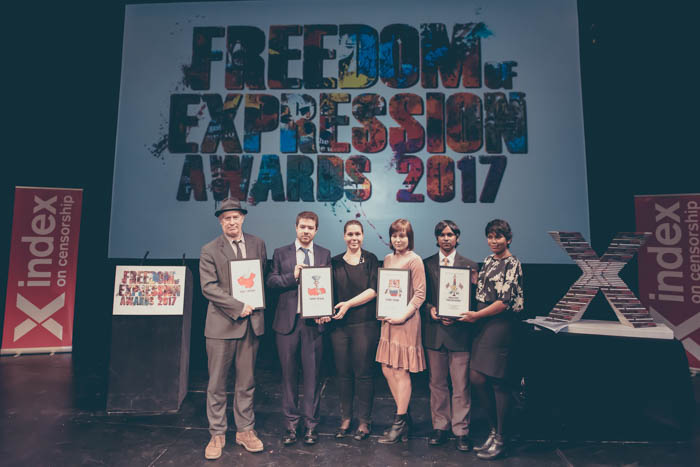
From left: Cartoonist Martin Rowson accepting the Arts Award on behalf of Chinese cartoonist Rebel Pepper; Alp Toker of Digital Activism Award-winner Turkey Blocks; Isik Mater of Digital Activism Award-winner Turkey Blocks; Anastasia Zotova, wife and campaign partner of Campaigning Award-winner Ildar Dadin; Ahemd Naish, editor of Journalism Award-winning Maldives Independent; Zaheena Rasheed, former editor of Journalism Award-winning Maldives Independent. (Photo: Elina Kansikas for Index on Censorship)
Awards were presented in four categories: arts, campaigning, digital activism and journalism.
The winners were: Chinese political cartoonist Rebel Pepper (Arts); Russian human rights activist Ildar Dadin (Campaigning); Digital collective Turkey Blocks (Digital Activism); news outlet Maldives Independent and its former editor Zaheena Rasheed (Journalism).
“These winners are free speech heroes who deserve global recognition,” said Index on Censorship CEO Jodie Ginsberg. “They, like all of those nominated, face huge personal and political hurdles in their fight so that others can express themselves freely.”
Drawn from more than 400 public nominations, the winners were presented with their awards at a ceremony at the Unicorn Theatre, London, hosted by comedian Katy Brand.
Actors, writers and musicians were among those celebrating with the winners. The guest list included activist Bianca Jagger, artist Bob and Roberta Smith, tech expert Nicole Yershon journalists Matthew Parris and David Aaronovitch, lawyer Nancy Hollander, novelist Hilary Mantel and director Peter Kosminsky.
Winners were presented with cartoons created by Aseem Trivedi, an Indian political cartoonist and activist, known for his Cartoons Against Corruption campaign.

High-res versions of the awards cartoons can be found here.
Neither Rebel Pepper nor Ildar Dadin could join the ceremony in London. Dadin was represented by his wife and campaigning partner Anastasia Zotova. Rebel Pepper delivered his acceptance speech via video.
Each of the award winners becomes part of the third cohort of Freedom of Expression Awards fellows. They join last year’s winners — Zaina Erhaim (Journalism), Bolo Bhi (Campaigning), GreatFire (Digital Activism), Murad Subay (Arts), Smockey (Music in Exile) — as part of a world-class network of campaigners, activists and artists sharing best practices on tackling censorship threats internationally.
Through the fellowship, Index works with the winners – both during an intensive week in London and the rest of the awarding year – to provide longer term, structured support. The goal is to help winners maximise their impact, broaden their support and ensure they can continue to excel at fighting free expression threats on the ground.
Judges included Harry Potter actor Noma Dumezweni, Hillsborough lawyer Caoilfhionn Gallagher QC, former Vanity Fair editor Tina Brown, as well as Anab Jain, TED fellow and co-founder of Superflux, and Stephen Budd, chairman of the Music Managers Forum.
Awards judge Tina Brown said: “At a time when freedom of expression and press are facing continuous and unprecedented threats around the globe, I am more than ever inspired by the boundless courage and sacrifices of Rebel Pepper, Ildar Dadin, Maldives Independent and Turkey Blocks. Ridiculed, persecuted, imprisoned, tortured, banned or exiled, these writers and activists are putting their lives on the line every day in order to protect basic human rights and fight injustice everywhere.”
Ziyad Marar, president of global publishing of SAGE Publishing, said: “Through working with Index for many years both as publisher of the magazine and sponsors of the awards ceremony, we at Sage are proud to support a truly outstanding organisation as they defend free expression around the world. Our warmest congratulations to everyone recognised tonight for their achievements and the inspiring example they set for us all.”
This is the 17th year of the Freedom of Expression Awards. Former winners include activist Malala Yousafzai, cartoonist Ali Ferzat, journalists Anna Politkovskaya and Fergal Keane, and Bahrain Center for Human Rights.
Guests were treated to food provided by Ganapati Restaurant and beer created by craft brewery Flying Dog.
Further details about the award winners are below.
For interviews with the award winners, who are in London until Friday 21 April, please contact David Heinemann at [email protected].
Videos, photographs and other content related to the awards night will be available beginning 11am on Thursday 20 April. Please contact Sean Gallagher at [email protected].
Index on Censorship is grateful for the support of the 2017 Freedom of Expression Awards sponsors: SAGE Publishing, Google, Private Internet Access, CNN, Vodafone, Vice News, Doughty Street Chambers, former Index Award-winning Psiphon, Gorkana, Edwardian Hotels and Flying Dog Brewery. Additional consideration provided by PROPERCORN and Divine Chocolate.
—–
Index on Censorship Freedom of Expression Awards 2017 – background on winners
Arts – Rebel Pepper (China)
Cartoonist Wang Liming (aka Rebel Pepper) was presented with the Index 2017 Freedom of Expression Award Arts award for satirising Chinese Premier Xi Jinping and lampooning the ruling Communist Party. For his efforts Rebel Pepper has been repeatedly persecuted. In 2014, he took exile in Japan after serious threats against him were posted on Chinese government-sanctioned online forums. The Chinese state has since disconnected him from his fan base by repeatedly deleting his social media accounts, conversations with friends and family are under state surveillance, and exile has made him isolated, bringing significant financial struggles. Nonetheless, Rebel Pepper keeps drawing, ferociously criticising the Chinese regime.
Journalist and 2017 Freedom of Expression Award judge Tina Brown said: “Rebel Pepper was cut off from his family, cut off from all his friends and he wasn’t even able to go back for his mother’s funeral after she died from cancer, which is a very, very cruel fate for someone who simply wanted to tell the truth. At a time when the president of China is going off to Davos and making big statesmen-like speeches about how China is a big open society now, everybody come and trade, the fact is that it’s a really repressive and dark regime.”
In his acceptance speech, delivered by video, Wang Liming said: “Political cartoons are significant as I can use my works to peel away the mask of false perfection put on by the Chinese government. The humour and satire employed in my works can also help lighten the mood and dispel the fear that the Chinese people have towards the administration. I feel that these are the key reasons why political cartoons play such an important role in China. Ever since I came to Japan, I have been able to relish freedom of speech to the fullest. As such, my works are no longer limited by any external restrictions save for the boundaries of my own imagination.”
Campaigning – Ildar Dadin (Russia). Award supported by Doughty Street Chambers
A Russian prisoners and LGBT rights activist, Dadin was the first, and only, person to be convicted under a notorious 2014 public assembly law. Aimed at punishing anyone who breaks strict rules on protest, the law was enacted to silence dissent after a wave of demonstrations following President Vladimir Putin’s last election victory. Dadin’s crime was to stage a series of one-man pickets, often standing silently with a billboard, attempting to duck the cynical law and push for free expression. For his solo enterprise, Dadin was arrested and sentenced to three years imprisonment in December 2015. In November 2016, website Meduza published a letter smuggled from Dadin to his wife, exposing torture he suffered alongside fellow prisoners. In February 2017, a Russian court quashed his conviction and Dadin was released.
Barrister and 2017 Freedom of Expression Awards judge Caoilfhionn Gallagher QC said: “Ildar Dadin has stood up to the Russian authorities in circumstances where we know how risky that can be: It has cost individuals their lives in recent years. It can even lose you a presidential election, as we now know. But Ildar, despite that, has continued to speak out and he continues to speak out even in the worst of circumstances.”
Speaking on behalf of Ildar Dadin, his wife and campaigning partner Anastasia Zotova said: “Tonight I tell you, that in Russia, there are no human rights. It is a society ruled through levels of cruelty and bigotry where Russians are forced to worship the great leader and any and all dissidents are stoned. Maybe I cannot join you in London but I can refuse to be silent. And you, friends, can refuse to be silent too. You can refuse to let these people silence me. Together, we can refuse to look away.”
Digital Campaigning – Turkey Blocks (Turkey). Award sponsored by Private Internet Access
Turkey Blocks is a digital transparency project documenting internet blackouts in a country marked by increasing authoritarianism, a strident crackdown on press and social media and numerous human rights violations.Turkish-British technologist Alp Toker brought together a small team to investigate internet restrictions and using Raspberry Pi technology they built an open source tool able to reliably monitor and report both internet shut downs and power blackouts in real time. Using their tool, Turkey Blocks have since broken news of 14 mass-censorship incidents during several politically significant events in 2016. The tool has proved so successful that it has been implemented elsewhere globally.
Designer and 2017 Freedom of Expression Awards judge Anab Jain said: “Alp Toker and Turkey Block’s work is important because it is going to have impact not just in Turkey but across the world wherever we start to see internet shutdowns.”
Alp Toker, founder of Turkey Blocks, said: “Turkey Blocks has developed new technology that can pinpoint and validate reports of shutdowns in real time. Through 2016 we uncovered evidence of over a dozen major blackouts during national emergencies, arrests of opposition party members and a devastating attempted military coup. We provided the data that enabled media, local press and international communities to report with confidence and push back to keep the internet on. We encouraged the government to become more transparent and limit use of their telecommunications kill-switch. Today our cause crosses political lines and resounds throughout Turkey’s polarised society.”
Journalism – Maldives Independent and Zaheena Rasheed (Maldives). Award sponsored by CNN
Website Maldives Independent, which provides news in English, is one of the few remaining independent media outlets in a country that ranks 112 out of 180 countries on the Reporters Without Borders Press Freedom Index. In August 2016 the Maldives passed a law criminalising defamation and empowering the state to impose heavy fines and shut down media outlets for “defamatory” content. In September, Maldives Independent’s office was violently attacked and later raided by the police, after the release of an Al Jazeera documentary exposing government corruption that contained interviews with former editor Zaheena Rasheed, who had to flee for her safety. Despite the pressure, the outlet continues to hold the government to account.
Doughty Street Chambers Barrister and 2017 Freedom of Expression Awards judge Caoilfhionn Gallagher QC said: “Maldives Independent under the stewardship of Zaheena Rasheed has faced attacks from all sides in recent years and despite all that they’ve continued to do what they do best: tell stories, expose corruption, expose human rights abuses and attacks on a free press.”
Zaheena Rasheed, former editor, Maldives Independent said: “This award feels like a lifeline. Most of our challenges remain the same, but this recognition and the fellowship has renewed and strengthened our resolve to continue reporting, especially on the bleakest of days. Most importantly, we no longer feel so alone. Tonight I want to honour my colleague, Ahmed Rilwan – who embodies the spirit of speaking truth to power, even in the face of the gravest threats. He’s been missing for nearly 1,000 days now. I want to say tonight, that no matter how long it may take, we will continue the search for him and fight for him.”
ABOUT THE FREEDOM OF EXPRESSION AWARDS AND FELLOWSHIP
The Index on Censorship Freedom of Expression Awards recognise those individuals and groups making the greatest impact in tackling censorship worldwide. Established 17 years ago, the awards shine a light on work being undertaken in defence of free expression globally. Often these stories go unnoticed or are ignored by the mainstream press. Through the fellowship, Index works with the winners – both during an intensive week in London and the rest of the awarding year – to provide longer term, structured support. The goal is to help winners maximise their impact, broaden their support and ensure they can continue to excel at fighting free expression threats on the ground.
ABOUT INDEX ON CENSORSHIP
Index on Censorship is a UK-based nonprofit that campaigns against censorship and promotes free expression worldwide. Founded in 1972, Index has published some of the world’s leading writers and artists in its award-winning quarterly magazine, including Nadine Gordimer, Mario Vargas Llosa, Samuel Beckett and Kurt Vonnegut. Index promotes debate, monitors threats to free speech and supports individuals through its annual awards and fellowship program.
[vc_row full_width=”stretch_row_content_no_spaces”][vc_column][vc_column_text]
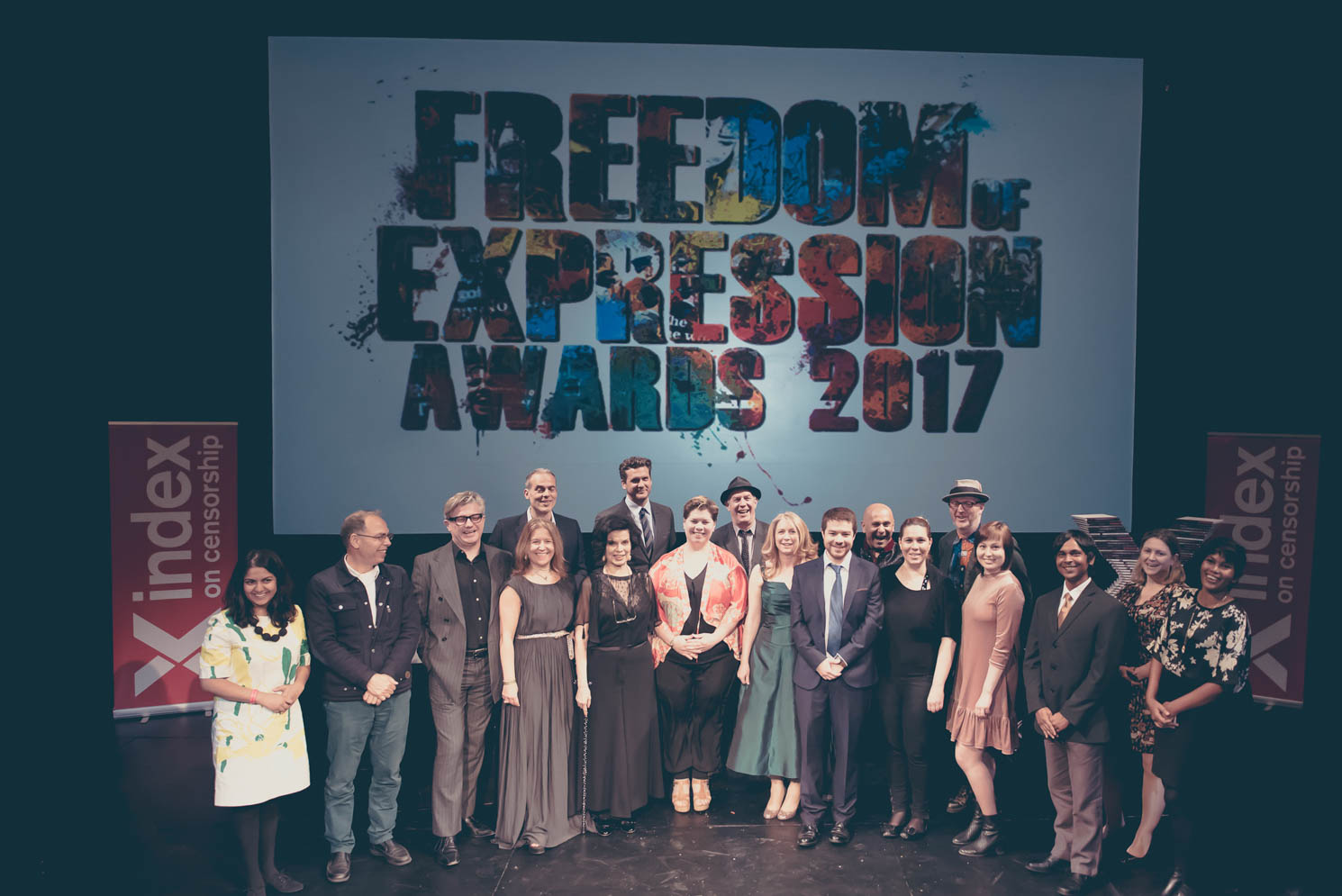
From left: Co-founder Superflux and Freedom of Expression Awards Judge Anab Jain, finalist Maati Monjib, music executive and Freedom of Expression Awards Judge Stephen Budd, tech expert Nicole Yershon, global publishing director Ziyad Marar, president and founder of the Bianca Jagger Human Rights Foundation Bianca Jagger, CNN London Bureau chief Tommy Evans, comedian and actor Katy Brand, cartoonist Martin Rowson, Index CEO Jodie Ginsberg, Turkey Blocks’ Alp Toker, Poet Shane Solanki, Turkey Blocks’ Isik Mater, artist Bob and Roberta Smith, wife and campaigning partner of Ildar Dadin Anastasia Zotova, Maldives Independent’s Ahmed Naish, Freedom of Expression Awards Judge and Barrister Caoilfhionn Gallagher QC, Maldives Independent’s Zaheena Rasheed (Photo: Elina Kansikas for Index on Censorship) High resolution images are available for download on Flickr
A Chinese political cartoonist forced into exile and a Russian prisoners and LGBT rights activist convicted under the country’s draconian anti-protest law were among the winners of the 2017 Index on Censorship Freedom of Expression Awards.
The winners, announced on Wednesday evening at a gala ceremony in London, also included a crusading news organisation battling corruption in the Maldives and a group tracking Turkey’s internet shutdowns.
Awards were presented in four categories: Arts, Campaigning, Digital Activism and Journalism.
The winners were: Chinese political cartoonist Rebel Pepper (Arts); Russian human rights activist Ildar Dadin (Campaigning); Digital collective Turkey Blocks (Digital Activism); news outlet Maldives Independent and its former editor Zaheena Rasheed (Journalism).
“These winners are free speech heroes who deserve global recognition,” said Index on Censorship CEO Jodie Ginsberg. “They, like all of those nominated, face huge personal and political hurdles in their fight so that others can express themselves freely.”
Drawn more than 400 public nominations, the winners were presented with their awards at a ceremony at the Unicorn Theatre, London, hosted by comedian Katy Brand.
Winners were presented with cartoons created by Aseem Trivedi, an Indian political cartoonist and activist, known for his Cartoons Against Corruption campaign.

Each of the award winners becomes part of the third cohort of Freedom of Expression Awards fellows. They join last year’s winners — Zaina Erhaim (Journalism), Bolo Bhi (Campaigning), GreatFire (Digital Activism), Murad Subay (Arts), Smockey (Music in Exile) — as part of a world-class network of campaigners, activists and artists sharing best practices on tackling censorship threats internationally.
Through the fellowship, Index works with the winners – both during an intensive week in London and the rest of the awarding year – to provide longer term, structured support. The goal is to help winners maximise their impact, broaden their support and ensure they can continue to excel at fighting free expression threats on the ground.
Judges included Harry Potter actor Noma Dumezweni, Hillsborough lawyer Caoilfhionn Gallagher QC, former Vanity Fair editor Tina Brown, as well as Anab Jain, TED fellow and co-founder of Superflux, and Stephen Budd, chairman of the Music Managers Forum.
Awards judge Tina Brown said: “At a time when freedom of expression and press are facing continuous and unprecedented threats around the globe, I am more than ever inspired by the boundless courage and sacrifices of Rebel Pepper, Ildar Dadin, Maldives Independent and Turkey Blocks. Ridiculed, persecuted, imprisoned, tortured, banned or exiled, these writers and activists are putting their lives on the line every day in order to protect basic human rights and fight injustice everywhere.”
This is the 17th year of the Freedom of Expression Awards. Former winners include activist Malala Yousafzai, cartoonist Ali Ferzat, journalists Anna Politkovskaya and Fergal Keane, and Bahrain Center for Human Rights.[/vc_column_text][/vc_column][/vc_row][vc_row full_width=”stretch_row_content_no_spaces” content_placement=”middle”][vc_column][vc_column_text]
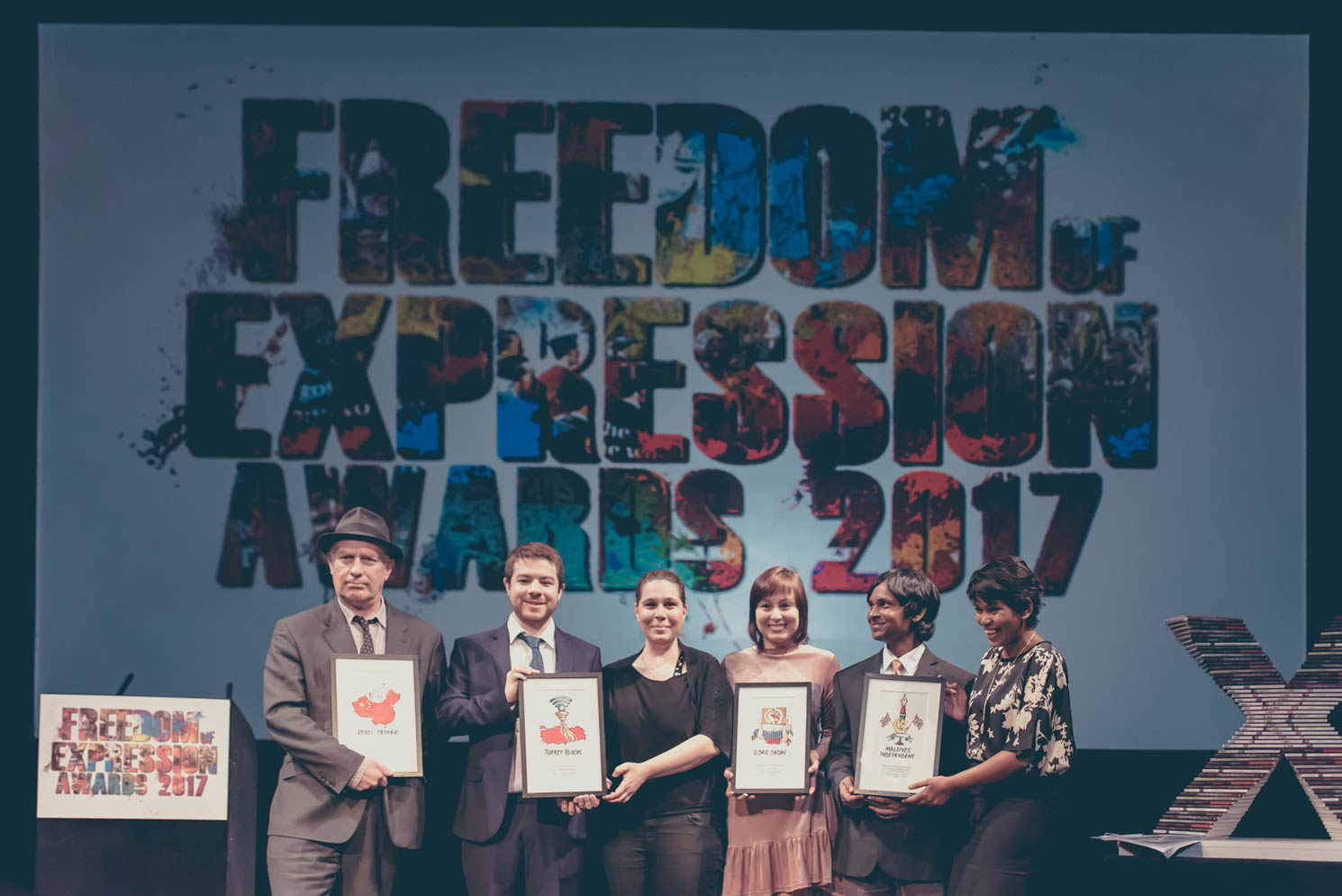
From left: Cartoonist Martin Rowson accepting the Arts Award on behalf of Chinese cartoonist Rebel Pepper; Alp Toker of Digital Activism Award-winner Turkey Blocks; Isik Mater of Digital Activism Award-winner Turkey Blocks; Anastasia Zotova, wife and campaign partner of Campaigning Award-winner Ildar Dadin; Ahemd Naish, editor of Journalism Award-winning Maldives Independent; Zaheena Rasheed, former editor of Journalism Award-winning Maldives Independent. (Photo: Elina Kansikas for Index on Censorship) High resolution images are available for download on Flickr
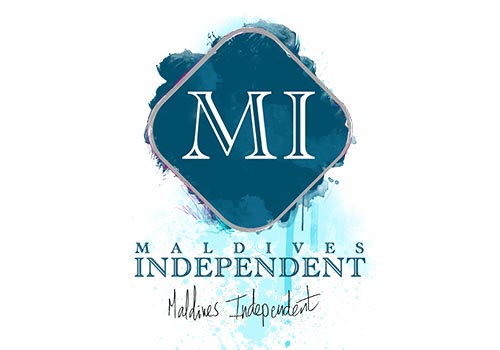 Maldives Independent and Zaheena Rasheed have been named the winner of the 2017 Freedom of Expression Journalism Award.
Maldives Independent and Zaheena Rasheed have been named the winner of the 2017 Freedom of Expression Journalism Award.
Website Maldives Independent, which provides news in English, is one of the few remaining independent media outlets in a country that ranks 112 out of 180 countries on the Reporters Without Borders Press Freedom Index. In August 2016 the Maldives passed a law criminalising defamation and empowering the state to impose heavy fines and shut down media outlets for “defamatory” content. In September, Maldives Independent’s office was violently attacked and later raided by the police, after the release of an Al Jazeera documentary exposing government corruption that contained interviews with editor Zaheena Rasheed, who had to flee for her safety. Despite the pressure, the outlet continues to hold the government to account.
Doughty Street Chambers Barrister and 2017 Freedom of Expression Awards judge Caoilfhionn Gallagher QC said: “Maldives Indpendent under the stewardship of Zaheena Rasheed has faced attacks from all sides in recent years and despite all that they’ve continued to do what they do best: tell stories, expose corruption, expose human rights abuses and attacks on a free press.”
Zaheena Rasheed, former editor, Maldives Independent said: “This award feels like a lifeline. Most of our challenges remain the same, but this recognition and the fellowship has renewed and strengthened our resolve to continue reporting, especially on the bleakest of days. Most importantly, we no longer feel so alone. Tonight I want to honour my colleague, Ahmed Rilwan – who embodies the spirit of speaking truth to power, even in the face of the gravest threats. He’s been missing for nearly 1,000 days now. I want to say tonight, that no matter how long it may take, we will continue the search for him and fight for him.”
Speech | Profile[/vc_column_text][/vc_column][/vc_row][vc_row][vc_column][vc_text_separator title=”2017 Freedom of Expression Digital Activism Award”][vc_column_text]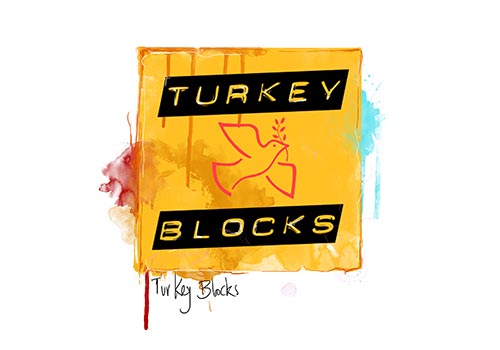
Turkey Blocks is a digital transparency project documenting internet blackouts in a country marked by increasing authoritarianism, a strident crackdown on press and social media and numerous human rights violations.Turkish-British technologist Alp Toker brought together a small team to investigate internet restrictions and using Raspberry Pi technology they built an open source tool able to reliably monitor and report both internet shut downs and power blackouts in real time. Using their tool, Turkey Blocks have since broken news of 14 mass-censorship incidents during several politically significant events in 2016. The tool has proved so successful that it has been implemented elsewhere globally.
Designer and 2017 Freedom of Expression Awards judge Anab Jain said: “Alp Toker and Turkey Block’s work is important because it is going to have impact not just in Turkey but across the world wherever we start to see internet shutdowns.”
Alp Toker, founder of Turkey Blocks, said: “Turkey Blocks has developed new technology that can pinpoint and validate reports of shutdowns in real time. Through 2016 we uncovered evidence of over a dozen major blackouts during national emergencies, arrests of opposition party members and a devastating attempted military coup. We provided the data that enabled media, local press and international communities to report with confidence and push back to keep the internet on. We encouraged the government to become more transparent and limit use of their telecommunications kill-switch. Today our cause crosses political lines and resounds throughout Turkey’s polarised society.”
Speech | Profile[/vc_column_text][/vc_column][/vc_row][vc_row][vc_column][vc_text_separator title=”2017 Freedom of Expression Campaigning Award”][vc_column_text]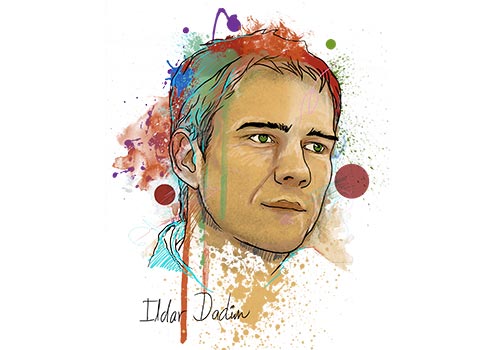
A Russian prisoners and LGBT rights activist, Dadin was the first, and only, person to be convicted under a notorious 2014 public assembly law. Aimed at punishing anyone who breaks strict rules on protest, the law was enacted to silence dissent after a wave of demonstrations following President Vladimir Putin’s last election victory. Dadin’s crime was to stage a series of one-man pickets, often standing silently with a billboard, attempting to duck the cynical law and push for free expression. For his solo enterprise, Dadin was arrested and sentenced to three years imprisonment in December 2015. In November 2016, website Meduza published a letter smuggled from Dadin to his wife, exposing torture he suffered alongside fellow prisoners. In February 2017, a Russian court quashed his conviction and Dadin was released.
Barrister and 2017 Freedom of Expression Awards judge Caoilfhionn Gallagher QC said: “Ildar Dadin has stood up to the Russian authorities in circumstances where we know how risky that can be: It has cost individuals their lives in recent years. It can even lose you a presidential election, as we now know. But Ildar, despite that, has continued to speak out and he continues to speak out even in the worst of circumstances.”
Speaking on behalf of Ildar Dadin, his wife and campaigning partner Anastasia Zotova said: “Tonight I tell you, that in Russia, there are no human rights. It is a society ruled through levels of cruelty and bigotry where Russians are forced to worship the great leader and any and all dissidents are stoned. Maybe I cannot join you in London but I can refuse to be silent. And you, friends, can refuse to be silent too. You can refuse to let these people silence me. Together, we can refuse to look away.”
Speech | Profile[/vc_column_text][/vc_column][/vc_row][vc_row][vc_column][vc_text_separator title=”2017 Freedom of Expression Arts Award”][vc_column_text]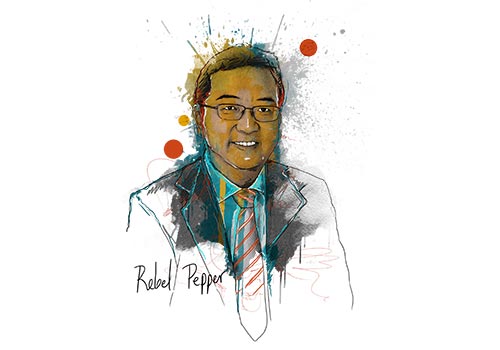
Cartoonist Wang Liming (aka Rebel Pepper) was presented with the Index 2017 Freedom of Expression Award Arts award for satirising Chinese Premier Xi Jinping and lampooning the ruling Communist Party. For his efforts Rebel Pepper has been repeatedly persecuted. In 2014, he took exile in Japan after serious threats against him were posted on Chinese government-sanctioned online forums. The Chinese state has since disconnected him from his fan base by repeatedly deleting his social media accounts, conversations with friends and family are under state surveillance, and exile has made him isolated, bringing significant financial struggles. Nonetheless, Rebel Pepper keeps drawing, ferociously criticising the Chinese regime.
Journalist and 2017 Freedom of Expression Award judge Tina Brown said: “Rebel Pepper was cut off from his family, cut off from all his friends and he wasn’t even able to go back for his mother’s funeral after she died from cancer, which is a very, very cruel fate for someone who simply wanted to tell the truth. At a time when the president of China is going off to Davos and making big statesmen-like speeches about how China is a big open society now, everybody come and trade, the fact is that it’s a really repressive and dark regime.”
In his acceptance speech, delivered by video, Wang Liming said: “Political cartoons are significant as I can use my works to peel away the mask of false perfection put on by the Chinese government. The humour and satire employed in my works can also help lighten the mood and dispel the fear that the Chinese people have towards the administration. I feel that these are the key reasons why political cartoons play such an important role in China. Ever since I came to Japan, I have been able to relish freedom of speech to the fullest. As such, my works are no longer limited by any external restrictions save for the boundaries of my own imagination.”
Speech | Profile[/vc_column_text][/vc_column][/vc_row][vc_row][vc_column][vc_text_separator title=”Jodie Ginsberg: Our ambition is modest: nothing less than an end to censorship”][vc_column_text]
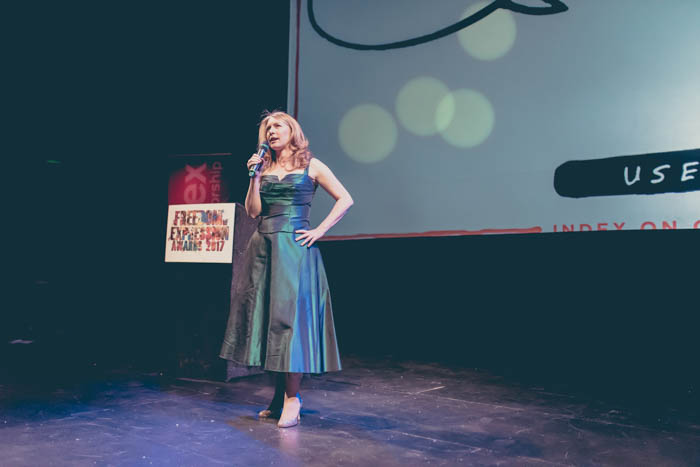
Jodie Ginsberg, chief executive, Index on Censorship (Photo: Elina Kansikas for Index on Censorship)
“I hope you are indeed having an extraordinary evening. It’s extraordinary because of the individuals and groups we have honoured here tonight and it’s extraordinary because you make it so.
“Many of you are old friends of Index. Others are new acquaintances. For those of us who are new to us – and the old friends who may have forgotten – I want to take this opportunity to tell, or remind, you a little bit about us and what we do.
“Index was founded 45 years ago to tell the stories of dissidents behind the Iron Curtain and beyond – from the very first magazine we featured stories from across the world by and about censored writers and artists: from Brazil to Greece to Bangladesh. We were concerned then, as now, not just with the written word but all forms of expression. And we have continued to publish this magazine – the only of its kind in the world – ever since.”
[/vc_column_text][vc_column_text]High-resolution images are available for download on Flickr.[/vc_column_text][/vc_column][/vc_row][vc_row][vc_column][vc_media_grid grid_id=”vc_gid:1494001232704-44285c22-af33-2″ include=”89695,89694,89693,89692,89691,89690,89689,89688,89687,89686,89685,89684,89683,89682,89681,89680,89679,89678,89677,89676,89675,89673,89672,89671,89669,89667,89666,89665,89663,89662,89582,89581,89580,89578,89577,89576,89575,89574,89552,89551,89550,89549,89548,89547,89546,89545,89544,89543,89542,89540,89539,89538,89537,89536,89535,89534,89533,89532,89531,89530,89529,89528,89527,89523,89522,89520,89519,89518,89517,89515,89514,89513,89512,89511,89510,89509,89508,89491,89490,89489,89488,89487,89484,89706″][vc_basic_grid post_type=”post” max_items=”12″ style=”load-more” items_per_page=”4″ element_width=”6″ grid_id=”vc_gid:1494001233011-308855d4-4b96-8″ taxonomies=”8935, 8734″][/vc_column][/vc_row]